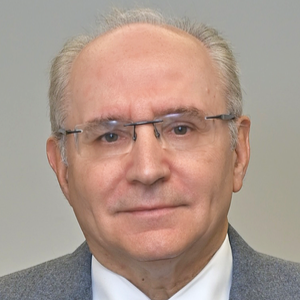For most New Yorkers, having a Last Will and Testament is ubiquitous. As one ages, it is not unusual for the topic of a conversation to be whether one has signed their Last Will. Unfortunately, what is often missing from the conversation is that a Last Will only controls assets held by an individual in his or her name alone at the time of his or her death (not jointly held assets or assets with named beneficiaries), and that for the Last Will to be effective as to those assets, it must admitted to Probate in the Surrogate's Court of the County where the decedent resided.
The complexity, cost, and delays associated with the Probate process are not often discussed. The following are some of the reasons one should try to avoid utilizing a Last Will that needs to be admitted to Probate upon one's demise:
(a) Avoiding the potentially significant legal fees and filing fees associated with the Probate process.
While the legal fees may vary depending on where one resides and the experience of the attorneys retained, it is not unusual, depending on the complexity of the estate (size and number of assets subject to probate), for the fees to be approximately 3% to 5% of the decedent's gross estate (the equivalent of an executor's commission). Additionally, there are court filing fees associated with Probate with the filing fee for an estate of $500,000 or greater being $1,250.00, which is the highest fee. There will also be small fees to obtain letters testamentary (the document appointing the Executor).
In addition to the legal fees, an unanticipated expense can arise where the Court needs to appoint a Guardian ad Litem (an attorney) to represent the interests of any beneficiary that is a "person under a disability." Any minor child or disabled person (physical or mental) that is a beneficiary will require that a Guardian ad Litem be appointed for him or her to protect his or her interest in the Probate proceeding. The Guardian ad Litem is required to file a report with the court. This often delays the admission of the Last Will to Probate and the issuance of full Letters Testamentary to the named executor, and adds a potentially significant additional cost to the Probate process.
(b) The Probate process can often take 9 months to one year to complete from beginning to end. Even after the Last Will has been admitted to Probate, there are filings such as the Inventory of Assets and Affidavit of Completion, which are required by the court at specific times after the Will has been admitted to Probate. Filing these forms often cause delays in completing the administration of the estate, which results in delaying the distribution of assets to the Will's beneficiaries.
(c) The existence of a Last Will that needs to be admitted to Probate increases the risk of a Will contest.Any distributee (person that would inherit if there is no Last Will) has to be cited (receive written notice) that the Last Will is being offered for Probate. This presents the opportunity for said person to challenge the validity of the Last Will. Generally, the grounds for challenging a Last Will include that the decedent lacked testamentary capacity, that the Will was the product of undue influence, duress or fraud and/or that said Last Will was not duly executed. If one thinks the cost and expense of an uncontested Probate process are high, the potential legal fees, expenses and delays associated with a challenge to one's Last Will are significantly greater.
(d) The Probate process is wholly devoid of any privacy. One's Last Will and Testament is on file and open for public viewing. Additionally, the nature and value of the assets comprising one's estate will need to be divulged in both the Probate Petition and Inventory of Assets. In my opinion, this lack of privacy is sufficient reason in and of itself to avoid the Probate process.
In conclusion, the use of a Trust, whether Revocable and/or Irrevocable, should be strongly considered as a tool to avoid the Probate process and the potential costs and delays associated with it.

















